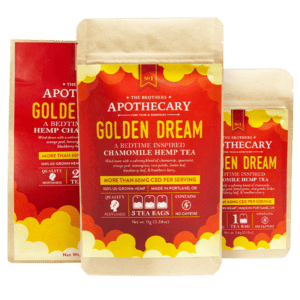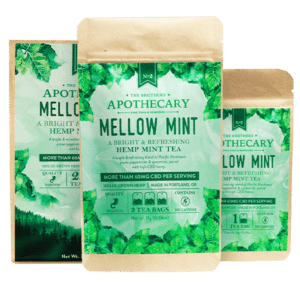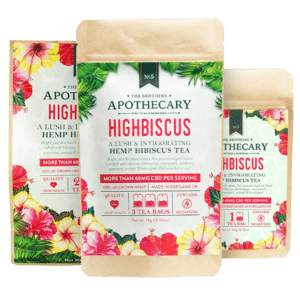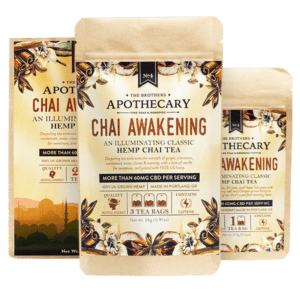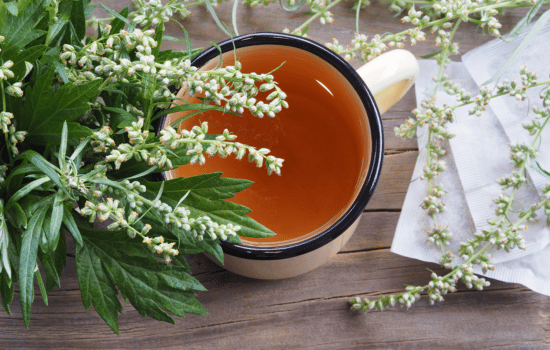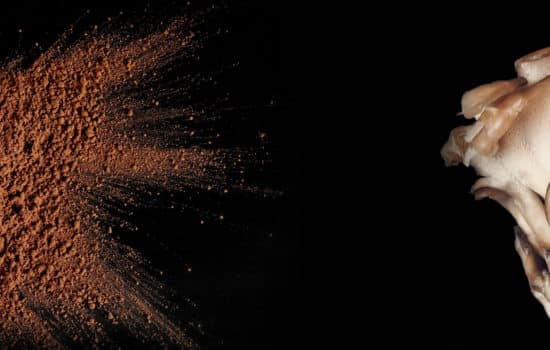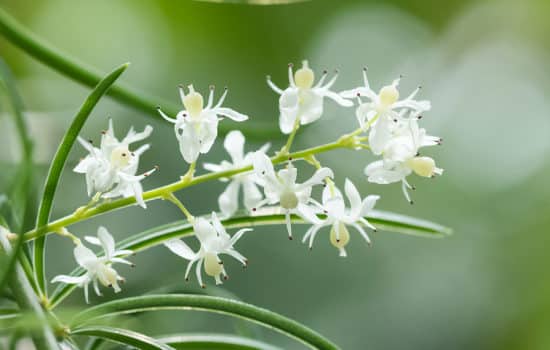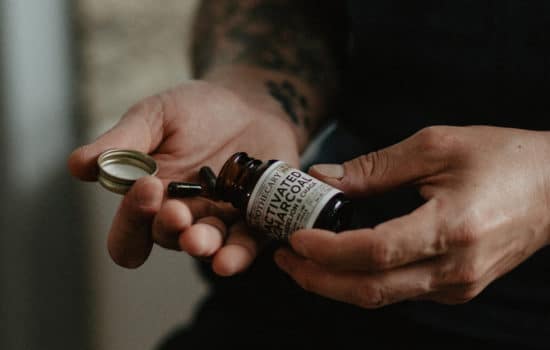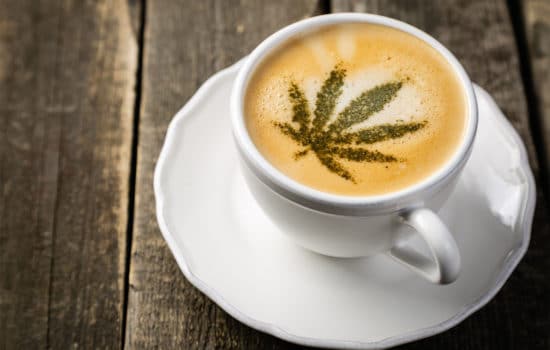Matcha is a rich, fine tea powder that is naturally caffeinated but also calming. A recent resurgence in popularity means that you have likely seen matcha powder folded into steamed milk at your local coffee shop or maybe even tinting chocolate treats green at a nearby bakery.
But what exactly is matcha, and how can you introduce the same benefits that led Samurai Soldiers in Japan to use matcha for their spiritual tea ceremonies or ancient Buddhist monks to drink it before long periods of meditation into your own morning routine?
What Sets Matcha Apart From Green Tea?
While matcha comes from the same plant as other green teas–the Camellia sinensis plant– the growing method and nutrient content of matcha sets it apart.
Unlike most tea leaves, the young green tea leaves used for matcha tea leaves are grown in the shade. The matcha leaves are covered 20 to 30 days before harvesting, as the lack of sunlight encourages heightened production of the chlorophyll compound. This added chlorophyll gives matcha its majestic deep green color and increases the amino acid content.
Once ready for harvest, the matcha tea leaves are not rolled and dried like other green tea leaves. Instead, they are dried and then ground into powder in slow-turning mills.
This powdered form allows the nutrients from the entire leaf to make it into the final product that ends up in your mug, rather than simply what can be extracted during the typical steeping process. Therefore, matcha tea packs more caffeine and antioxidants into its punch than your typical green tea. The use of the entire tea leaf also enhances the matcha’s flavor.
Matcha is bright and bold, with a hint of sweetness and a unique umami flavor. Many people get hooked on the taste of matcha alone, without even knowing about all of the health benefits!
How Much Matcha Can You Drink in a Day?
Because matcha has more caffeine and amino acid than most teas, just a little bit goes a long way. Traditionally, one to two teaspoons of matcha powder is whisked with two ounces of water using a bamboo whisk. It is recommended to limit your matcha intake to one or two cups per day.
Is It Safe To Drink Matcha Everyday?
Worried about caffeine jitters? Fear not! It is absolutely safe to drink matcha every day. In fact, CBD is known to be calming and reduce the effects of caffeine jitters, even after that third cup.
However, it is recommended you stay within the one to two cups per day and should never have more than five cups in a day, as there is always the possibility of too much of a good thing. This will help you reap the benefits of matcha tea without potentially overdoing a healthy caffeine intake.
It is also important to ensure that your matcha is organic, so you are getting only the healthy plant nutrients and none of the potentially harmful chemicals that may reach the leaves if pesticides are used (pssst, all of the ingredients we use at the Brother’s Apothecary are guaranteed organic!).
What Are the Potential Benefits of Matcha?
The matcha tea leaves are made of compounds called catechins, which are rich in antioxidants. Antioxidants can be a powerful tool in stabilizing free radicals in our bodies.
Free radicals are unstable atoms that can destroy healthy skin cells by taking their electrons, destabilizing them. It is this process that can cause dry and irritated skin, as well as blemishes.
Skin Health
Research has found that antioxidants may have a unique ability to lend free radicals electrons without becoming unstable themselves. The antioxidant and antibacterial properties of matcha can help protect our skin from free radicals, limiting wrinkles, spots, and dryness, and visible signs of aging.
Weight Management
Matcha is rich in the antioxidant EGCG, which studies reveal may play a role in metabolism function. One study showed that pairing moderate exercise with daily consumption of matcha tea could stimulate the metabolism and assist the body in burning calories.
Attention and Focus
The EGCG catechin can bind to cannabinoid receptors in the central nervous system, which can help boost brain function and support memory and focus.
Caffeine is also known to help stimulate the central nervous system, boosting brain function and supporting attention, focus, and alertness. While most green teas contain between 25 to 40 milligrams of caffeine, matcha tea has 70 milligrams of caffeine.
Along with its high caffeine concentration, matcha’s other compounds can work together to promote even healthier brain function and–most notably–balance out the less desirable effects caffeine can have.
Energy Without Caffeine Jitters
The amount of caffeine found in matcha is comparable to that of coffee: 70 mg versus 100 mg.
However, matcha also contains increased levels of the compound L-theanine, which is able to mellow out some of the potentially harsher effects of caffeine. While L-theanine is a component of all teas, matcha holds five times as much as black or green teas.
L-theanine can increase serotonin and dopamine levels in the brain and promote alpha waves in the brain, leading to calmness and relaxation. So while you still get the alertness of the caffeine, L-theanine blocks out the jitters and the post-coffee crash.
Vitamin and Antioxidant Boost
Matcha is thought to have 15 times as many antioxidants as the super-fruit blueberries do, thanks to their catechin EGCG. One study even estimates that matcha has 100 times more of these health-boosting and free-radical-fighting catechins than other green teas.
There is a high content of other vitamins and minerals inside the matcha leaves, including vitamin C, selenium, chromium, zinc, and magnesium.
Oral Health
One surprising and lesser-known matcha benefit is that it can support healthy teeth and gums!
Studies credit the antioxidant ECCG to reduce the growth of bacteria that can lead to plaque buildup, cavities, and unhealthy gums. ECCG is found in green tea leaves, making them even more prominent in Matcha leaves.
Another plus? Matcha antioxidants may also balance out the sulfur compounds in your mouth, capable of causing bad breath. Swapping out coffee breath for a healthy mouth while still getting the caffeine boost sounds like a win-win to us!
How Do You Make Matcha Tea?
You want to make sure you are using certified organic and ceremonial-grade matcha tea powder for the perfect cup.
First, you’ll want to use a small sifter to sift one to two teaspoons of matcha powder into a cup. The more you add, the thicker the tea will be. Next, you’ll add two ounces of hot water that is just under a boil.
Once the water is added, use a whisk (traditionally a bamboo whisk) to mix. Whisk vigorously in a zig-zag motion. When your tea is frothy and filled with small bubbles, your matcha is ready to be enjoyed!
And if you are the kind of person who drinks iced coffees year-round, not to fear! While not quite as ceremonial, matcha can be made and drunk cold simply by adding a scoop of the tea powder to your water bottle, closing the lid, and shaking to mix. You can also throw the matcha powder and cold water in the blender for a few seconds to help make it extra smooth.
Should I Use Milk or Water for Matcha?
Traditionally matcha is mixed with hot water, but the choice is yours! Plenty of people prefer to use steamed milk or non-dairy milk.
It is worth noting, however, that matcha powder does blend best with water, so if you do prefer to use milk, you might want to first mix your powder with hot water before topping it with milk.
Conclusion
When it comes to incorporating matcha into your routine, the sky is truly the limit. You can forgo your morning coffee in favor of a traditional, bamboo-whisked cup of steaming matcha tea; get fancy with a splash of vanilla, honey, or turmeric in a perfect pick-me-up matcha latte, cool off with matcha lemonade popsicles, or get creative in the kitchen by adding some wondrously vibrant green powder to your baking concoctions.
Feel free to use your imagination and enjoy the magic of matcha in whatever form feels best for you!
Sources:
Why You Should Mix CBD Oil With Your Morning Coffee | Daily CBD
Green tea: a promising natural product in oral health | National Library of Medicine
Jesse Richardson is the co-founder of The Brothers Apothecary. He's an avid tea drinker and the primary creator behind The Brothers' products. An undergraduate of UCLA for Political Science, Jesse currently studies Medicinal Plants at Cornell University and The International School of Herbal Arts & Sciences.



